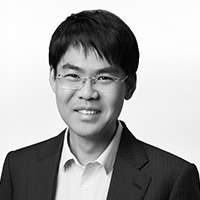U.S.-China Working on a Level Playing Field for Clean Energy Players
By Vivian Ni
Nov. 23 – China will still attach great importance to its strategic industries, but the country also pledged to provide equal market access to both domestic and foreign clean energy suppliers, according to the U.S. Commerce Secretary John Bryson, who just met Chinese Vice Premier Wang Qishan at the two-day meeting of the U.S.-China Joint Commission on Commerce and Trade (JCCT) held in the southwestern city of Chengdu.
A series of agreements were signed by the two sides on Monday, covering areas that include energy cooperation and the trading of high-tech products. The agreements also included a memorandum of understanding on creating a “commercial matchmaking” program between the U.S. Department of Commerce (DoC) and a Chinese trade promotion association, according to a report by MarketWatch.
The Chinese government’s improper support of its domestic green tech industries has been growing into a major concern for foreign players. In the face of such complaints, Chinese officials confirmed that foreign enterprises will be equally eligible for subsidies or other preferential policies for new energy vehicles (NEVs). In addition, Beijing also promised not to require foreign NEVs to transfer technology or help establish domestic brands – two factors many foreign automakers have worried might be imposed as preconditions to their China market entry.
China’s pledges to maintain a level playing field came shortly after a recent trade case the DoC opened against China’s solar panel makers. While this time around, Chinese solar panel manufacturers have little hope to stop the DoC from imposing a punitive tariff of 50 percent to 250 percent on Chinese solar panel imports, China is looking to file its own anti-dumping and anti-subsidy case against the United States at a later date – possibly against the U.S. exports of polysilicon, says a report by the New York Times.
China’s potential retaliation in the trade case is only one among many other issues indicating that trade tensions between the two countries may not be defused so easily. The United States has long complained that China’s artificially low local currency is hurting U.S. exporters and its domestic job market, while China is uneasy about Washington’s continuous moves to expand its political and economic presence in Asia.
Well aware that these fundamental issues may not find resolution any time soon, the JCCT has aimed to focus on individual policy disputes. In previous meetings, leaders from both sides have reached agreements to reduce barriers to imports of U.S. beef and to crack down on rampant Chinese software piracy.
Furthermore, the two countries will continue their joint efforts to fight against intellectual property right (IPR) infringement in China following this year’s meeting. Beijing has established a State Council-level leadership structure to lead and coordinate IPR enforcement across China. It has also committed more measures that will further promote the use of licensed software in governments and enterprises, according to a statement by the Office of the U.S. Trade Representative.
Dezan Shira & Associates is an international boutique professional services firm providing foreign direct investment business advisory, tax, accounting, payroll and due diligence services for multinational clients. For information or advice, please email china@dezshira.com, visit the firm’s web site at www.dezshira.com, or download our brochure here. A weekly subscription to the best of Asia Briefing news can also be obtained free of charge from our subscriptions page.
Related Reading
 Foreign Investment in China’s Green Sector
Foreign Investment in China’s Green Sector
This issue of China Briefing magazine offers an overview of the country’s renewable energy sector and discusses environment-related tax incentives before concluding with a look at foreign involvement in China’s green building industry.
U.S. Pushes Trade Issues at APEC Summit, China Pushes Back
The United States – A New China Alternative?
U.S. Multinationals Reconsider China-Based Manufacturing
China Stresses Measures to Boost New-energy Car Market
- Previous Article The Economist Annual China Summit Summarized
- Next Article Has China’s Demographic Dividend Payout Ended?

































